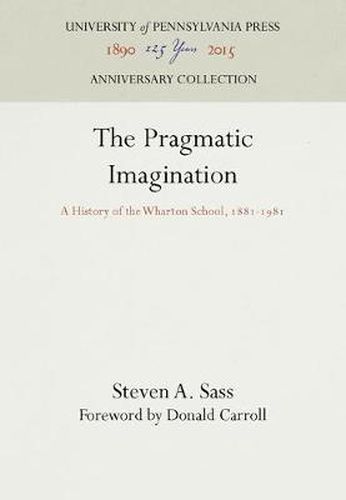Readings Newsletter
Become a Readings Member to make your shopping experience even easier.
Sign in or sign up for free!
You’re not far away from qualifying for FREE standard shipping within Australia
You’ve qualified for FREE standard shipping within Australia
The cart is loading…






As prominent as the Wharton School of Business is today, so was the Wharton family in the mercantile world of eighteenth-century Philadelphia. Nineteenth-century scion of this large and wealthy business family, Joseph Wharton amassed a huge new fortune in his American Nickel Company and the Bethlehem Steel Corporation, and through these enterprises helped catapult the nation into the modern age of industry. In 1881, while still in mid-career, he contributed part of his accumulated wealth to endow the Wharton School of Finance and Economy at the University of Pennsylvania. Wharton’s purpose was to prepare the city’s young men of inherited wealth and capacity to assume control of the complex economy that he and his fellow entrepreneurs were then creating. He would have the university provide that cultural background needed by all gentlemen of society, while the new Wharton course would instruct students in those economic experiences necessary for success in the world of practical affairs. Wharton’s investment and instructional program began the modern tradition of collegiate management education.
Steven A. Sass’s The Pragmatic Imagination not only provides a history of the world’s oldest and still one of the most prestigious schools of management but also offers a fascinating exploration of the interaction of higher education and economic activity. The volume illuminates the essential tension in professional business education-that between utilitarian training and scholarly speculation-and analyzes the various regimes of conflict, accommodation, and synergy between these two interests. Providing the unifying theme of the history is Joseph Wharton’s ambition to create a leadership class for industrial America. Careful attention is devoted to the various strategies adopted to achieve this end and to the forces that facilitated or frustrated the founder’s purpose. Essentially an essay on the role of authority in the development of American culture, The Pragmatic Imagination carries the history of Joseph Wharton’s experiment from its origins in the ironmaster’s entrepreneurial ethos; through the vigorous Mugwumpery of the 1880s; to the gospel of the Progressive Era of civic revival and practical education; into the crises of depression and war; through the flowering of econometrics and operations research; down to the present-day vogue for the M.B.A.
$9.00 standard shipping within Australia
FREE standard shipping within Australia for orders over $100.00
Express & International shipping calculated at checkout
As prominent as the Wharton School of Business is today, so was the Wharton family in the mercantile world of eighteenth-century Philadelphia. Nineteenth-century scion of this large and wealthy business family, Joseph Wharton amassed a huge new fortune in his American Nickel Company and the Bethlehem Steel Corporation, and through these enterprises helped catapult the nation into the modern age of industry. In 1881, while still in mid-career, he contributed part of his accumulated wealth to endow the Wharton School of Finance and Economy at the University of Pennsylvania. Wharton’s purpose was to prepare the city’s young men of inherited wealth and capacity to assume control of the complex economy that he and his fellow entrepreneurs were then creating. He would have the university provide that cultural background needed by all gentlemen of society, while the new Wharton course would instruct students in those economic experiences necessary for success in the world of practical affairs. Wharton’s investment and instructional program began the modern tradition of collegiate management education.
Steven A. Sass’s The Pragmatic Imagination not only provides a history of the world’s oldest and still one of the most prestigious schools of management but also offers a fascinating exploration of the interaction of higher education and economic activity. The volume illuminates the essential tension in professional business education-that between utilitarian training and scholarly speculation-and analyzes the various regimes of conflict, accommodation, and synergy between these two interests. Providing the unifying theme of the history is Joseph Wharton’s ambition to create a leadership class for industrial America. Careful attention is devoted to the various strategies adopted to achieve this end and to the forces that facilitated or frustrated the founder’s purpose. Essentially an essay on the role of authority in the development of American culture, The Pragmatic Imagination carries the history of Joseph Wharton’s experiment from its origins in the ironmaster’s entrepreneurial ethos; through the vigorous Mugwumpery of the 1880s; to the gospel of the Progressive Era of civic revival and practical education; into the crises of depression and war; through the flowering of econometrics and operations research; down to the present-day vogue for the M.B.A.